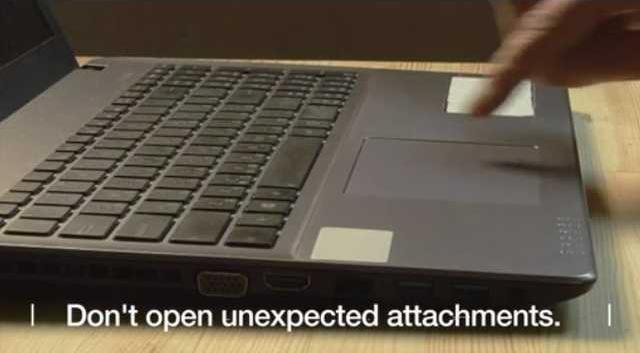A computer malware has spread across more than 150 countries over the weekend, according to BBC.
Countries report that the attack is slowing down, but there are reports of fresh attacks in both Asia and Europe, BBC reported.
Experts still warn people to be mindful of the malware attack as a new workweek begins, BBC reported.
The WannaCry ransomware began on Friday. It begins by taking over peoples computers, storing their files and demanding a $300 payment to get them back.
Thousands of computers across the world have been affected.
So what do you need to know? Heres a quick rundown.
Countries report that the attack is slowing down, but there are reports of fresh attacks in both Asia and Europe, BBC reported.
Experts still warn people to be mindful of the malware attack as a new workweek begins, BBC reported.
The WannaCry ransomware began on Friday. It begins by taking over peoples computers, storing their files and demanding a $300 payment to get them back.
Thousands of computers across the world have been affected.
So what do you need to know? Heres a quick rundown.
- More than 200,000 people in at least 150 countries got hit with the cyber attack, Reuters reported. Large corporations felt the brunt of the attack.
- Hospitals in the UK were also left exposed, BuzzFeed News reported. Ambulances were given alternate routes and equipment actually shut down.
- Europol director Rob Wainwright from Reuters: "At the moment, we are in the face of an escalating threat. The numbers are going up; I am worried about how the numbers will continue to grow when people go to work and turn (on) their machines on Monday morning."
- Financial Times put together a timeline on the attack. It started in Europe and slowly spread out to Russia and the United States.
- Russia President Vladimir Putin blamed the U.S. for the attacks, according to The Telegraph.
- John Bambenek, manager of threat systems at Fidelis, told The Financial Times that this is likely the work of an organized criminal group.
- Microsoft and Windows users should update their software immediately to avoid the massive hack, BuzzFeed News reported.
- CNBC has a good question-and-answer piece to help you figure out how at-risk you are for the malware. Most people can avoid the attack with up-to-date anti-virus software.
- Dont pay the ransom, experts told BBC. A Twitter bot exists that shows these payments are being processed, but experts advise against paying criminals. Theres no guarantee youll receive your files back even if you pay.
- An accidental hero emerged from the attacks. The Guardian reported that one researcher, a 22-year-old expert from England, said he found a kill switch in the malwares code that allowed him to temporarily halt the attack.
- The hero, who did not reveal his name, told The Guardian the attacks arent over: This is not over. The attackers will realise how we stopped it, theyll change the code and then theyll start again. Enable windows update, update and then reboot.
- The New York Times reported the effects of these attacks will last for a few days.
- Microsoft called for world leaders to create a set of rules on cyberspace following the attack, USA Today reported. Microsoft President Brad Smith said countries should build a Geneva Convention-like set of rules to protect people from cyber attacks. They need to take a different approach and adhere in cyberspace to the same rules applied to weapons in the physical world. We need governments to consider the damage to civilians that comes from hoarding these vulnerabilities and the use of these exploits.








